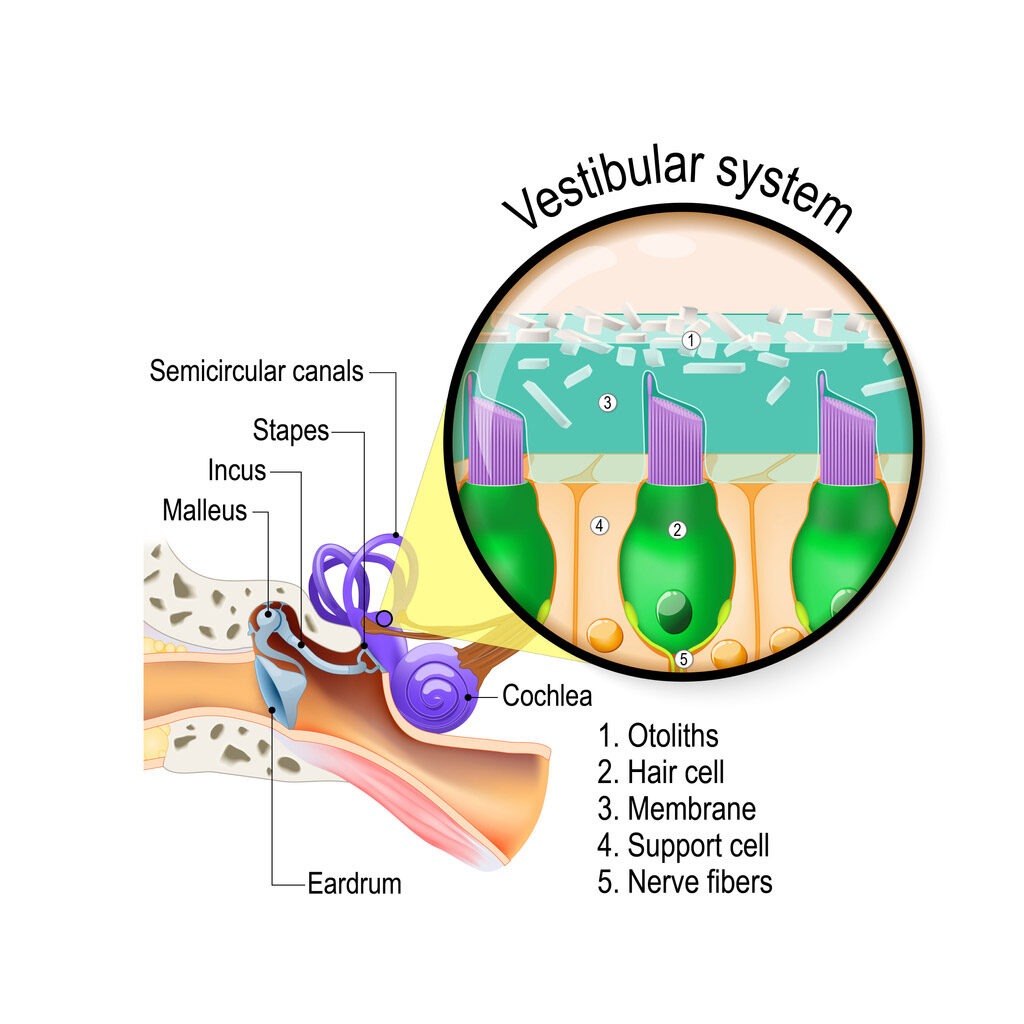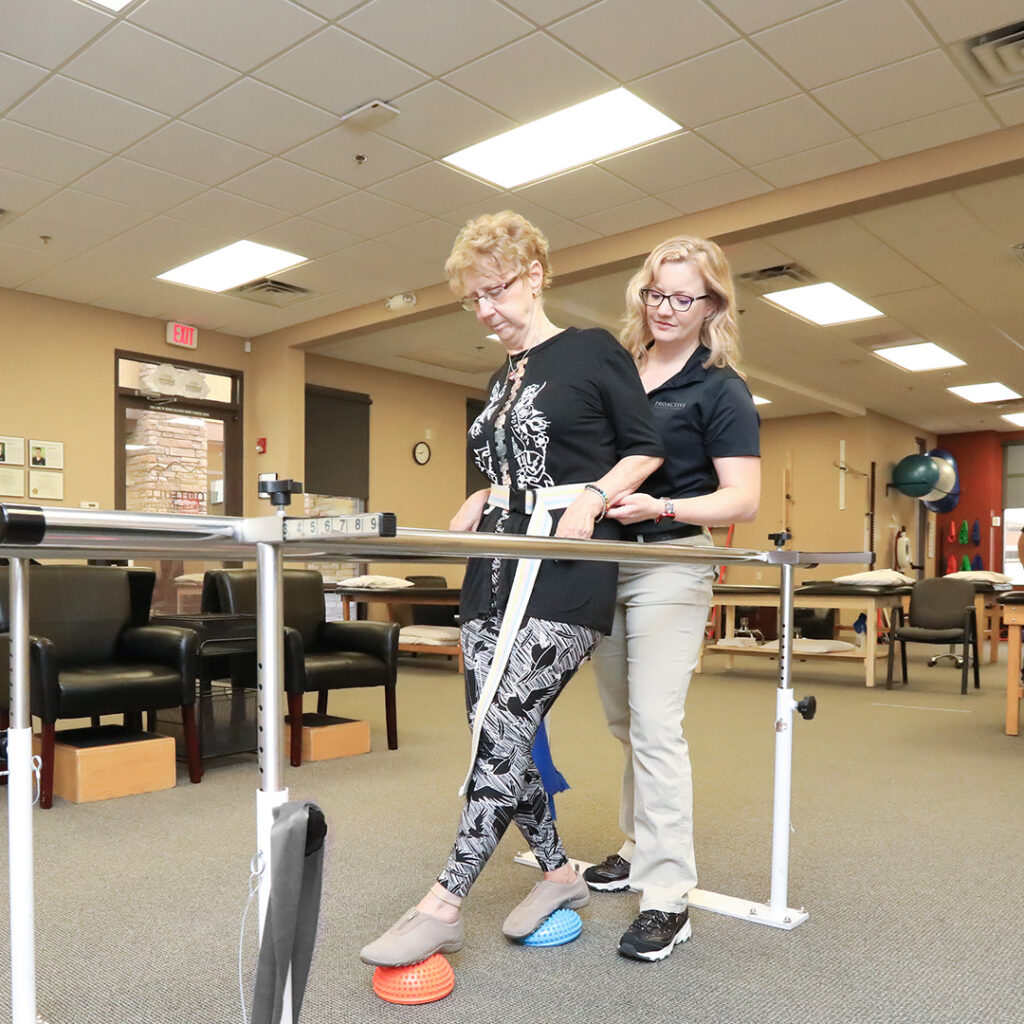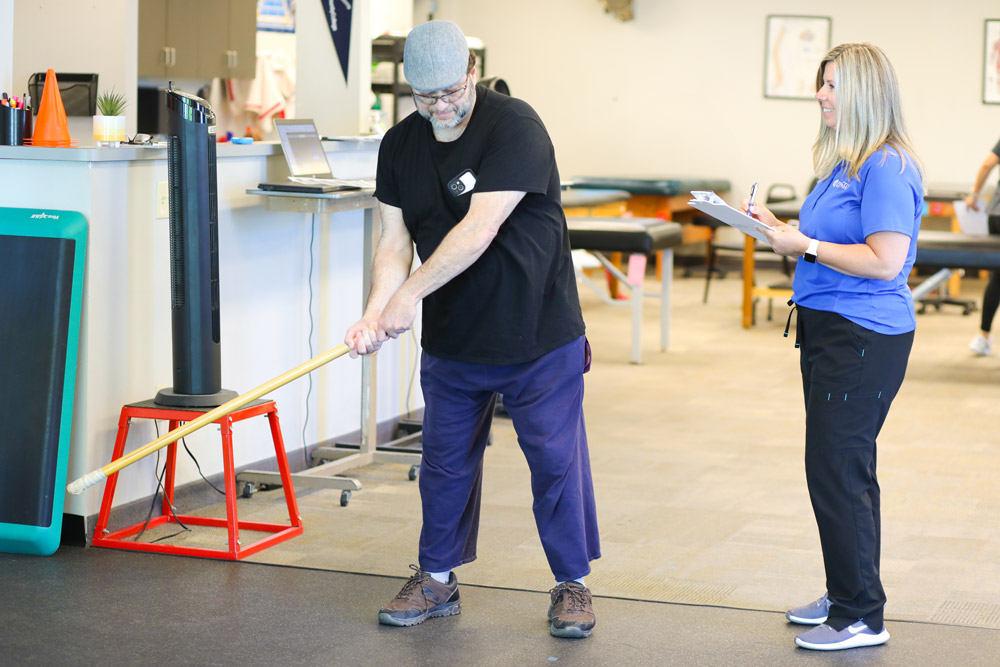Have you ever gotten out of bed in the morning only to find the room spinning, making you wonder what in the world is going on? This feeling is likely caused by one of two things: vertigo or dizziness. Dizziness typically consists of nonspecific symptoms, like light-headedness or a feeling of swimming or floating. Vertigo, on the other hand, is a feeling of spinning that is associated with any turning motion of the head. Morning dizziness and vertigo may have different causes, but both can be treated by a trained physical therapist.
What Prevents Us From Falling?
The vestibular system is a sensory system that detects movement to allow us to stay in an upright position and prevent us from falling. An issue in this system is usually what causes vertigo. Unfortunately, nearly 1,000,000 people per year visit the emergency room because of a fall, and this statistic tends to increase with age. In fact, one-third of people 65 and older have fallen at least one time each year.

How We Maintain Balance
The way we maintain balance is through vision, the somatosensory system (how we feel touch, heat, and pain), and the vestibular system. We all recognize the role of the eyes in balance control. We use visual cues to maintain upright postures, and it obviously becomes more difficult to maneuver safely in complete darkness. The somatosensory system, however, allows us to know what position our bodies are in without looking at them. For example, you can close your eyes and bend your elbow to 90 degrees, and you will still be able to sense that your elbow is bent without having to open your eyes and check. The vestibular system provides information that is also sensitive to body position but, more importantly, lets us know the speed at which our bodies are moving. This helps us use the muscular system to protect us from falling.

Physical Therapy to Improve Balance
Physical therapists have received training to use techniques that correct the condition of the vestibular system. Exercises to improve balance and decrease the feeling of spinning will also increase function and safety. The physical therapists at ProActive are well-equipped and have gained the experience to help identify and resolve your concerns.
BPPV can be easily and quickly treated by a physical therapist in only one or two visits if properly diagnosed. A free assessment will direct you to the right course of treatment. Morning dizziness is just one of many vestibular disorders, so talking to healthcare professionals about symptoms is extremely important.
Schedule a free consultation today if you have questions or concerns about vertigo.




